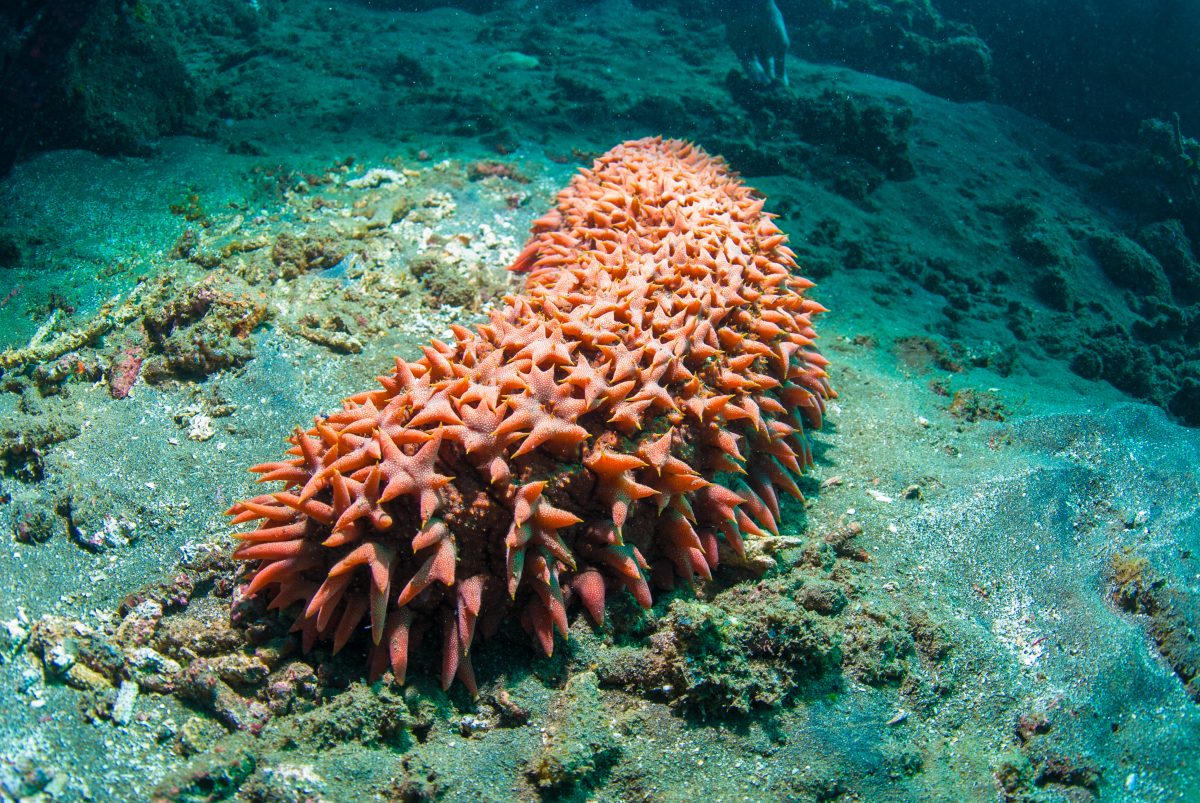Speciesism [spee-shee-ziz-uhm] is defined as ‘the practice of treating members of one species as morally more important than members of other species’ (Britannica, 2013). In part one of this series, we explored speciesism in relation to dolphin and tuna: the former which we don’t want caught in our fishing nets, and the latter which we do want caught in our fishing nets. Another example of speciesism hailing from the ocean is that of sharks and sea cucumbers – but how on Earth are these immensely different creatures connected?
Sharks
The media portrays them as sleek, perfectly evolved powerhouses. Just like horror movies and ghost stories, we are (un)naturally drawn to sharks because they evoke fear. This perhaps contributed to videos of helpless finned sharks gaining so much traction: a dominant predator knocked from their throne; a symbol of strength made to look so defenceless. As top predators ourselves, did their vulnerability hit too close to home?
Anti-shark fin soup messages may be the most dominant campaigns of our generation. We are repeatedly told that sharks are ‘top of the food chain’ and thus important to ecosystems (which has unconsciously made some believe that animals in the middle or bottom of the food chain are less important, which is just not true). Quirky communications that we are more likely to be killed by a coconut than a shark sooth our fears and evoke empathy toward these mis-understood creatures; how could we have got them so wrong?
The narrative has been spectacular, tugging on a range of our emotions. As a result, sharks are now seen as worthy of protection, and eating them is frowned upon by many. On the contrary, rays, which are essentially flattened sharks, are more threatened yet receive far less conservation attention. They never quite had the mystique or dramatic narrative to capture our imaginations.
Sea cucumbers
These bizarre creatures, which come in many shapes and colours, are part of the echinoderm family along with sea urchins and starfishes. When anti-shark fin campaigns impacted businesses, many restaurants and outlets replaced shark fin with sea cucumber, which are used as a luxury food and traditional medicine. The trade in sea cucumber has grown over the years, with unsustainable and illegal black markets occurring. There is also global interest in the development of western medicine from sea cucumber compounds.
Some species of sea cucumber are now highly threatened. However, the sea cucumbers’ demise has not hit mainstream media in the same way that sharks did, and few members of the public are aware of their downfall. With no visible limbs or eyes, and exhibiting barely any movement, sea cucumbers are perhaps not charismatic or relatable enough for humans to connect with. Tragically, while many celebrate the apparent reduction in demand for shark fin, few stop to think about the animal now suffering in its place.
Is speciesism wrong?
We cannot help but be drawn to certain animals more than to others; it is natural and happens subconsciously. But we should not only consider these creatures and allow other animals, which we may see as inferior, to perish. Each creature has an important role in the ecosystem, and the preservation of one species should certainly not result in the demise of another.
Amongst the human race, it is wrong to see a particular race or sex as superior to another. So, if racism and sexism are morally wrong, shouldn’t speciesism be as well? Moving forward, let’s act compassionately toward all marine creatures – regardless of our personal connection with them.
